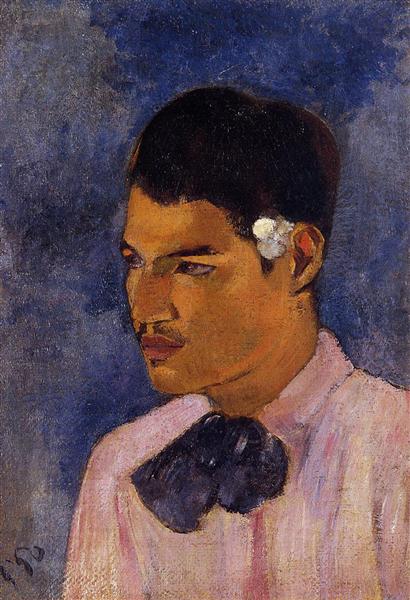What does the poem ‘Flowers’ by Wendy Cope actually mean? Is it a light-hearted and positive poem or does it have dark and negative connotations to it? Perhaps both? ‘Flowers’ by Wendy Cope is a bittersweet poem about intentions, inaction, and the memory of love. It says that thought without action isn’t meaningless, nor is it meaningful enough – it reflects a darker aspect of us that we oft hide with good intentions.
‘Flowers’ is a bitter-sweet poem in the truest of senses: on one side of the coin, Cope’s ex-lover cared enough to want to do an act of love for her (bringing flowers); on the other side of it, he never actually goes through with it.
To show the same within the poem, the ‘sweet’ aspects are in bold, and the ‘bitter’ parts of the poem are in italics. As follows,
Flowers, Wendy Cope
Cope, Wendy; ‘Flowers,’ Serious
Concerns, Page 4; London: Faber and Faber, 1992.
Some men never
think of it.
You did. You’d
come along
And say you’d
nearly brought me flowers
But something
had gone wrong.
The shop was closed. Or you had doubts –
The sort that
minds like ours
Dream up
incessantly. You thought
I might not want
your flowers.
It made me smile
and hug you then.
Now I can only
smile.
But, look, the flowers you nearly brought
Have lasted all this while.
The fact that the poem is written in the past tense is of note. Wendy Cope goes out of her way to make the poem pointedly in the past tense by using you’d and you had (past perfect) in places where simple-past would have been more efficient. Beyond just inducing nostalgia, the use of past tense shows that the ex-love bringing the flowers (i.e., wanting to do things for her) was something precious, something perfect; ultimately, however, it was something that was, something that no longer is.
‘Sweet’ and ‘bitter’ and ambiguous terms. A little definition would be welcome. Herein, ‘sweet’ refers to the consideration the person mentioned in the poem had to consider/want to bring flowers, which is to say, the desire to do something for your lover; and ‘bitter’ refers to inaction on part of the lover-past, that he was not willing to go ahead and do ‘it’.
Throughout the poem, Cope alternates between these two moods. In the first stanza, it is half sweet followed by half bitter: Perhaps signifying the relationship didn’t last, that it went from being sweet to bitter. It is hard to say if this intention-inaction contrasting throughout the poem is intentional on Cope’s part. However, the effect this creates in concrete and thus it is analysis fruitful.
In the second stanza, the ‘bitter’ part is wrapped within the ‘sweetness’, like when kneading butter into dough by wrapping the dough around the butter. Continuing the same imagery into the following (3rd) stanza: there is sweet, there is bitter, and then it is mixed and kneaded by pain and time to create a combined bittersweet flavour. A nostalgia that you can’t quite let go.
The lover constantly thinks that he will do something for the narrator but he can never go through with this, which is to say: he is not willing to make an extended effort or take a risk for the sake relationship or the narrator. For him, buying the flowers (allegorical putting the effort for your partner in times of trial or at their lowest) was a risk that he recognised but wasn’t willing to take. ‘You had doubts’ as the poem says; ‘You thought I might not want your flowers’.
Relationships with people like that often don’t last; when the time comes for them to make that effort, well-intentioned though they be, they vanish – hence the significance of the poem being in the past tense. They never got around to it when the water was still and they certainly won’t follow through and bear when the storm blows. Some trial came and love went. The only thing that distinguishes them from the ‘men who never think of it’ is that they will be aware of the pathetic nature of their actions.
The narrator is of the attitude that ‘it’s the thought that counts’, at least in the reminiscent part of the poem, chalking it up to an overthinking nature which they both share. In the final stanza when it changes from past-tense to present (‘hug you then. / Now I can only smile’) she acknowledges the pain that has been caused because of this, thus making these two lines bittersweet. It also implies that she used to not acknowledge this behaviour back then when she was in the relationship but she does now that it is over.
Not all is as bitter as I make it out to be here. There is sweetness too. The intentions count for something. And they’re certainly endearing – at least the narrator thinks so. ‘It made me smile and hug you then’, Wendy Cope writes. She also writes: ‘the flowers you nearly brought / Have lasted all this while’. Even after the relationship has ended and she’s hurt because he never actually brought flowers, the memory of the love persists.
P.S., the author is quoted to have said that this was the personal favourite of her own poems, and I quote here that this is my second favourite Wendy Cope poem after ‘Dutch Portraits’.

Good read!
ReplyDelete